Unlocking the Opportunities: Portugal’s Digital Nomad Visa Guide
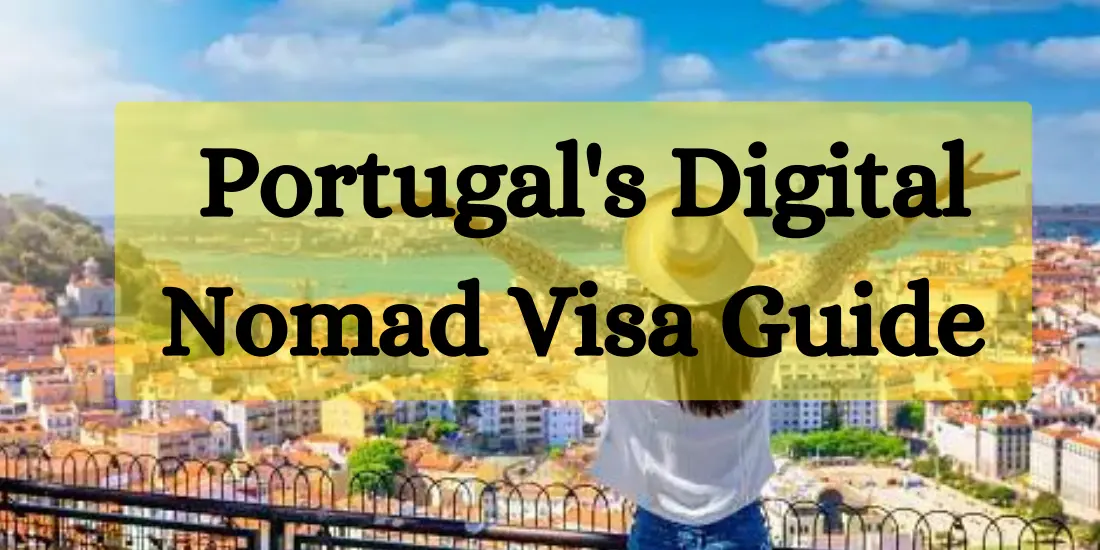
Portugal has recently unveiled a new visa option for digital nomads, the Portugal Temporary-Stay Visa. This visa program includes several options for individuals looking to live in Portugal. For those who can demonstrate an independent source of income, there is the D7 Passive Income Visa. Additionally, Portugal offers the D2 Entrepreneur Visa and the Portugal Golden Visa, which provide pathways to more permanent residency status in exchange for various investment requirements.
It’s important to note that if you are a citizen of an E.U. member state, an EEA country, or Switzerland, you are not required to obtain a visa for entry, residence, and work in Portugal. However, similar to individuals arriving on a D7 visa, you must register as a resident with the SEF (Serviço de Estrangeiros e Fronteiras) in Portugal. Further details on this registration process can be found below.
Varieties of Digital Nomad Visas Available in Portugal
Portugal offers five distinct visa options for digital nomads interested in residing and working there.
- The Temporary-Stay Visa is ideal for digital nomads who plan to work remotely while living in Portugal.
- The D7 Passive Income Visa is suitable for individuals seeking a stay of up to two years based on passive income sources.
- The Portugal Golden Visa and the D2 Entrepreneur Visa are designed for those looking to invest in the Portuguese economy and pursue a pathway to permanent residency.
- A short-term tourist visa is also a viable choice for those planning to stay less than 90 days without needing a local bank account.
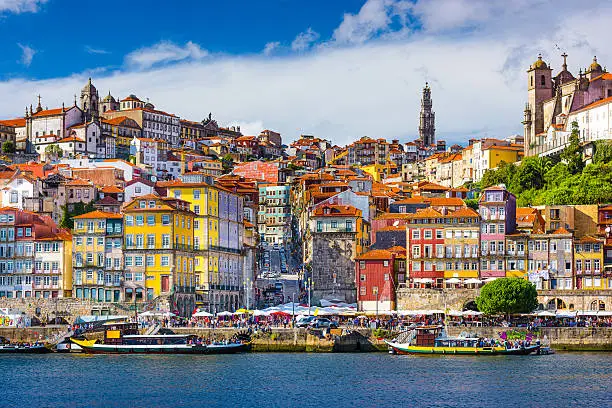
Temporary-Stay Visa
This particular visa is tailored for digital nomads. It allows individuals who can demonstrate a remote job to reside in Portugal while continuing their remote work, which should yield a minimum of €2,800 per month. The visa lasts one year, possibly extending it up to four times, granting a maximum total stay of five years.
Furthermore, during the initial four years of your visit, you will enjoy a reduced tax rate of 15% instead of the standard Portuguese rate of 25%. Apart from these prerequisites and incentives, the application process for this visa mirrors that of the D7 Visa.
D7 Passive Income Visa
Initially designed for retirees with independent passive incomes, this visa has also become an excellent option for digital nomads and remote workers. A 120-day visa is granted, after which you must visit the SEF (Servicio de Estangeiros e Fronteiras) to obtain a two-year residence permit. The visa and the residency permit offer complete entry to the Schengen area as though you were a citizen of the E.U. and Enable you to include your spouse and any dependent children when extending your visa.
To qualify, you must demonstrate adequate income from sources outside the country to support yourself and your family. This income should meet the minimum salary requirement of €8,460 per year. If you bring a spouse, an additional 50% (€4,230 per year) is required, and another 30% (€2,538 per year) must be shown for a dependent child.
D2 Entrepreneur Visa
Portugal’s Digital Nomad Visa (D2) ‘s primary focus is attracting entrepreneurs from outside the European Union to promote local investment in Portugal. To be eligible for this visa, you must demonstrate either the ownership of a company already operating in Portugal (which can also involve investing in an existing enterprise) or the financial capacity to establish such a company.
You can substantiate your financial capability by documenting your existing resources or presenting evidence of a bank loan obtained from a Portuguese financial institution.
While it is advisable to have at least €5,000 as proof, there is no specific minimum requirement. Furthermore, it is imperative to furnish a comprehensive business strategy that elucidates the beneficial effects of your investment on the local community and economy, along with your rationale for choosing Portugal as your business destination. You must show that you have enough financial resources to sustain yourself and any dependents while residing in the country, which should be at least the minimum wage in Portugal (€8,460 per annum).
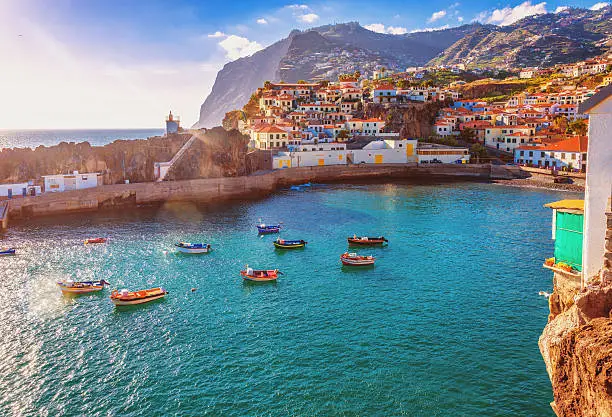
In addition to the opportunity to bring your family along, Portugal’s Digital Nomad Visa grants you entry to the Schengen area on par with an E.U. citizen. You also have the option to establish a bank account and change your tax residency to Portugal.
Initially, the visa is valid for 120 days, within which you are required to seek a residency permit that permits you to reside in the country for a maximum of 5 years. After these five years, you may apply for permanent residency and, eventually, citizenship.
Portugal Golden Visa
Portugal offers the Golden Visa program, an investment-based visa opportunity. By investing a minimum of €500,000, you can secure a residency permit granting you travel privileges within the E.U. similar to those of a Portuguese citizen. During your initial year in the program, you must only spend seven days in Portugal, followed by 14 days annually in subsequent years.
Furthermore, your spouse and dependent children can benefit from the same visa extension, and you gain the ability to open bank accounts. If desired, you can even transition your tax residency to Portugal, though tax obligations only apply if you spend over 183 days annually in the country.
To qualify for this program, the minimum investment is €500,000, and there are diverse investment pathways available:
- Real Estate or Investment Fund: You can invest in property or an investment fund. Opting for property in low-density or rehabilitation zones may permit a reduced investment threshold.
- Capital Investment: An alternative is a capital investment of at least €1.5 million.
- Job Creation: Creating ten new full-time positions within a business you own or investing a minimum of €500,000 in a local business while generating at least five new full-time jobs over three years also qualifies.
- Charitable Contributions: Lastly, you can donate at least €250,000 towards national heritage preservation or a minimum of €500,000 for research and development in Portugal.
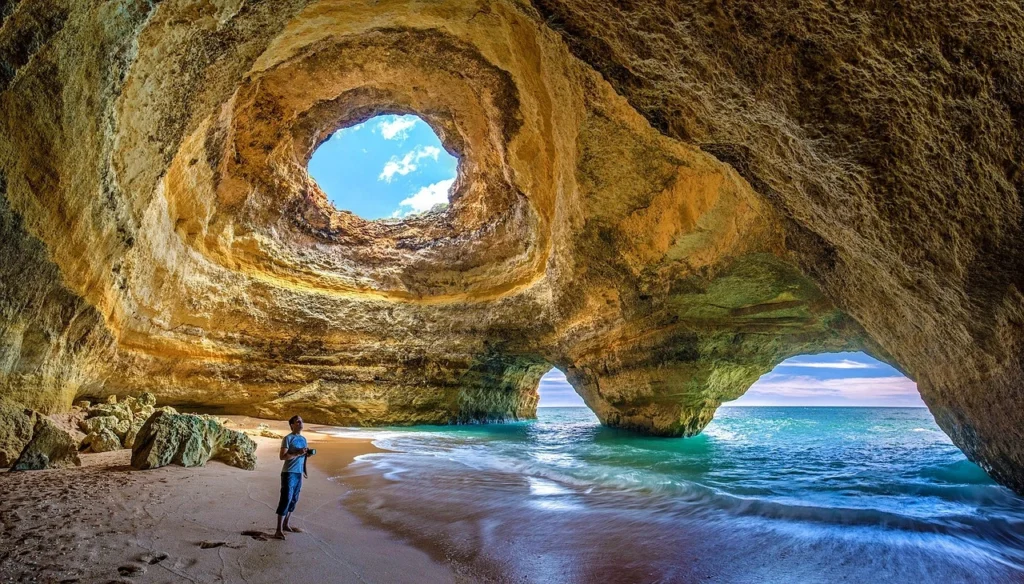
Tourist Visa
Citizens of numerous countries across the globe, such as Canada, Australia, the United States, New Zealand, Japan, Brazil, and the UAE, can visit Portugal for up to 90 days as tourists without needing a prior visa application. However, individuals from other countries are required to apply for a Schengen visa before they arrive in Portugal.
The most common Schengen visa allows for a 90-day stay within six months. However, frequent travelers also have the option to apply for a 5-year visa, which permits them to spend 90 days within the Schengen area every 180 days.
To obtain this visa, you will need to apply separately for each traveler and provide a detailed itinerary outlining your entry and exit points in the Schengen area and the countries you plan to visit.
To start the application procedure, you must provide:
- A fully filled-out visa application form.
- A current passport.
- Two recent passport-sized photos.
- Proof of your reservations.
Additionally, you should include your travel plans and evidence of travel health insurance with a minimum coverage of €30,000, documentation of your financial capacity to cover the trip expenses, and confirmation of payment for the visa fee.
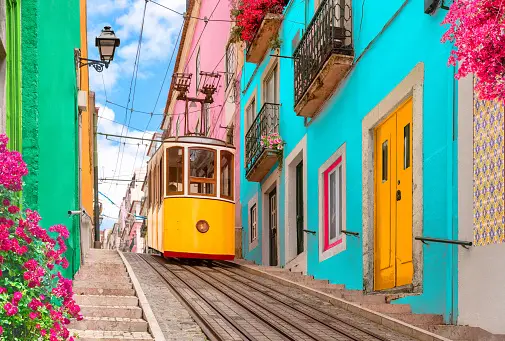
Which Portugal Visa Type is Suitable for Digital Nomads?
The ideal choice for digital nomads seeking to establish a presence in Portugal is Portugal’s Digital Nomad Visa, also known as the Temporary-Stay Visa, which is explicitly tailored to their needs. This visa is designed with digital nomads in mind, and as long as you meet the income criteria, it grants you unrestricted access to the Schengen Zone for up to five years.
On the other hand, the D2 Visa and the Golden Visa are better suited for individuals aiming for permanent or semi-permanent residency, requiring a substantial commitment of assets to the Portuguese economy. The D7 visa offers similar advantages to Portugal’s Digital Nomad Visa, including bringing family members, opening local bank accounts, and enjoying seamless travel within the Schengen area.
Who is eligible to apply for the Temporary-Stay Digital Nomad Visa in Portugal?
The need to apply for the Temporary-Stay Visa may vary depending on your citizenship. Here’s how individuals from specific citizenships should proceed with their applications.
For individuals holding United States citizenship
U.S. citizens can apply for the Portugal Temporary-Stay Visa if they meet the monthly income requirement of €2,800.
If you are an E.U. Citizen
If you originate from the E.U., an EEA nation, or Switzerland, you are not required to obtain a visa for entry, residence, or employment in Portugal. Nevertheless, you must complete the same resident registration process with the SEF, Similar to people arriving in Portugal on a Temporary Stay Visa.
If you possess a United States Green Card,
Green Card holders in the United States can request the Portugal Temporary-Stay Visa using a process similar to that of U.S. citizens. The key distinction for Green Card holders is the requirement for their residence permit (Green Card) to remain valid for three months beyond the two-year period they are permitted to stay in Portugal.
If you hold citizenship in Canada, Australia, or New Zealand
Individuals from these nations should follow the same application procedure for the Portugal Temporary-Stay Visa as U.S. citizens, provided they satisfy the monthly income requirement of €2,800.
If you reside in any other country
Residents of all other countries can also seek the Portugal Temporary-Stay Visa, provided they fulfill the income criteria of €2,800 per month.
Portugal Temporary-Stay Visa Requirements
Before submitting your Temporary-Stay Visa application, confirming your eligibility and gathering all the necessary documents is crucial.
Here are the primary eligibility criteria for the Temporary-Stay Visa:
To be eligible for the Temporary-Stay Visa, the following criteria apply:
- It would be best if you were a citizen from a non-EU/EEA/Swiss country (as these citizens do not require a visa).
- You must demonstrate a minimum monthly income of at least €2,800 from sources outside Portugal.
- You, as well as your dependents, must have a clean criminal record.
- You should possess evidence of accommodation in Portugal for one year, such as a rental agreement or hotel reservation.
- Upon arriving in Portugal, you must acquire a Portuguese NIF (Numero de Identificacao Fiscal) and open a Portuguese bank account within 120 days before submitting your residency application.

Documents Required for Paying Taxes in Portugal
Acquiring Portugal’s Digital Nomad Visa is a significant step in establishing your presence in the country. However, before fully enjoying this visa’s benefits, you must prioritize obtaining a NIF (Numero de Identification Fiscal), a prerequisite for fulfilling your tax obligations in Portugal.
This identification number is indispensable for a wide range of financial transactions, encompassing tasks as fundamental as opening a bank account, buying property, securing internet services, and conducting online purchases. Additionally, having an NIF is mandatory when applying for your residence permit in Portugal.
Obtaining an NIF is a straightforward process involving visiting the nearest Tax Office or Citizen Bureau (Financas or Loja do Cidadao). You can locate these offices by referring to the provided list of locations, and there is no need to schedule an appointment; you can visit during their operating hours. Issuing your NIF is part of the application process, and there are no associated fees. To complete the application, you must present valid identification (your passport), evidence of your residence (such as your visa), and documentation confirming your address in Portugal or your home country.
Portugal Bank Account Requirements
A local bank account is a prerequisite when applying for residence. You can establish an account with a domestic bank, an international bank with a presence in Portugal, or a mobile bank operating within the country. The procedure for initiating an account may differ among banks and hinges on the specific type of account you intend to create. Nonetheless, as an essential requirement, you must furnish valid identification (such as your passport), proof of your current address (your visa), evidence of your residence in Portugal or your home country, and your tax identification number (NIF). Additionally, your chosen bank may request additional documentation.
Proof of Financial Self-Sufficiency
When seeking a Temporary-Stay Visa, you must prove that you possess adequate financial resources to sustain yourself and any dependents with income outside of Portugal. What qualifies as sufficient? It corresponds to at least the minimum annual salary, which amounts to €8,460. If a spouse accompanies you, you must additionally exhibit an extra 50% of that amount (€4,230 per year), and for each dependent child, an additional 30% on top of the base requirement (€2,538 per year).
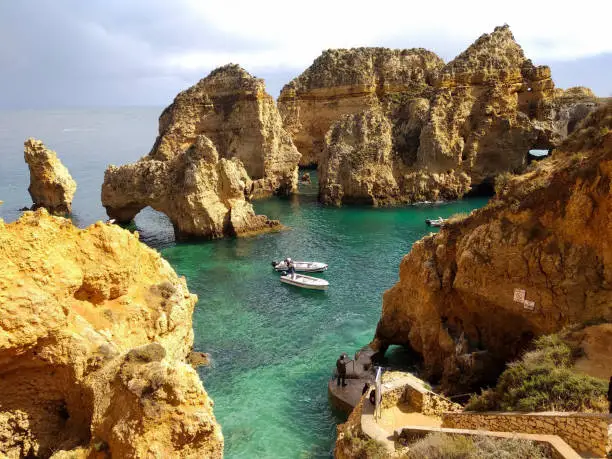
Full Health Insurance
You must furnish proof of travel health insurance covering you and your dependents for the initial four months of your journey, with a minimum coverage of €30,000 per person. After obtaining your residence permit in Portugal, you can explore various local health insurance options.
Access to Portuguese public healthcare is exclusively available to individuals who are residents for tax purposes and make contributions to Portugal’s social security system.
Clean Criminal Record
Most countries require applicants for long-term visas to provide documentation proving their clean criminal record. The specific process for obtaining this proof varies depending on your country of origin, but the certificate confirming your clean record should have been issued within the past three months. However, if you have resided in another country within the last five years, you must also submit a certificate from that country.
To authenticate your document, it must bear an Apostille, and if you need it translated into English or Portuguese, the translation must be legalized by the Portuguese Embassy. Additionally, the Embassy can supply you with a list of certified translators in your area.
Minimum Stay Requirement
Upon obtaining a two-year temporary stay visa, it is required that you reside in Portugal for a continuous period of at least 183 days (equivalent to 6 months) at some point during the validity of your visa.
Conclusion:
Portugal offers a range of visa options catering to digital nomads and remote workers, including the “Portugal’s Digital Nomad Visa.” Whether you seek temporary stays or long-term residency, Portugal has a visa program that suits your needs. The Temporary-Stay Visa is ideal for digital nomads looking for flexibility and access to the Schengen Zone, while the D7, D2, and Golden Visa offer pathways to more permanent residency. By comprehending the prerequisites and qualifications needed for each visa, including “Portugal’s Digital Nomad Visa,” you can make an informed choice to pursue your digital nomad lifestyle in Portugal.
FAQs: Portugal Digital Nomad Visa
1. What are the different visa options for digital nomads in Portugal?
Portugal offers several visa options for digital nomads, including the Temporary-Stay Visa, D7 Passive Income Visa, D2 Entrepreneur Visa, Portugal Golden Visa, and short-stay tourist visa.
2. What is the Temporary-Stay Visa in Portugal?
The Temporary-Stay Visa is designed for digital nomads and allows remote workers to live in Portugal while earning a minimum of €2,800 per month. It can be extended up to a total stay of five years with reduced tax rates.
3. How does the D7 Passive Income Visa work for digital nomads?
The D7 Passive Income Visa is suitable for those with passive income sources. It offers a two-year residence permit based on demonstrating sufficient income from outside Portugal, starting at €8,460 per year.
4. What is the D2 Entrepreneur Visa in Portugal?
The D2 Entrepreneur Visa targets entrepreneurs outside the E.U., encouraging investment in Portugal. To qualify, applicants must demonstrate company ownership or the financial capacity to establish one.
5. How does the Portugal Golden Visa program function for digital nomads?
The Portugal Golden Visa program allows individuals to secure residency by investing a minimum of €500,000. It grants travel privileges within the E.U. and requires spending 14 days annually in Portugal after the initial year.
